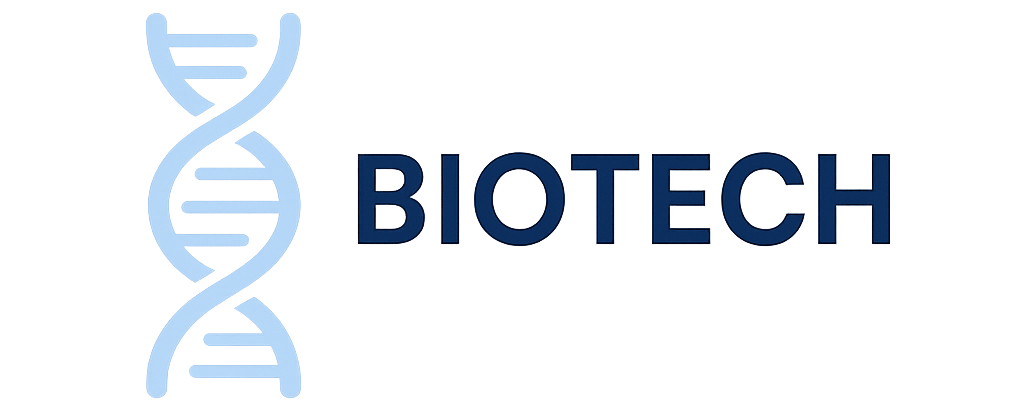The upheaval of personnel changes at the FDA flared anew this past week when Nicole Verdun, MD, super office director of the FDA’s Office of Therapeutic Products (OTP) at the Center for Biologics Evaluation and Research (CBER), and her deputy Rachael Anatol, PhD, were placed on administrative leave.
The sudden senior staff moves, which took place Wednesday, rekindled fears among some market watchers of a plunge in cell and gene therapy (CGT) stocks—a decline that, with one exception, turned out to be real, albeit less than feared.

Verdun’s abrupt ouster came about two weeks after she was showered with praise by Fyodor Urnov, PhD, director of technology & translation at the Innovative Genomics Institute (IGI), for her leading role at the FDA in expediting the bespoke CRISPR-based in vivo gene editing therapy used by Children’s Hospital of Philadelphia (CHOP) to cure 10-month-old “Baby KJ” of an ultra-rare, potentially fatal urea cycle disorder. Baby KJ made history and headlines worldwide by becoming the world’s first patient treated with a personalized CRISPR therapy, as detailed in a paper published in The New England Journal of Medicine.
Verdun and her staff “made the return of Baby KJ possible,” Urnov, who is also professor of molecular and cell biology at the University of California, Berkeley, declared to Vinayak (Vinay) Kashyap Prasad, MD, director of the CBER, FDA Commissioner Martin A. Makary, MD, and other officials earlier this month at a roundtable session with cell and gene therapy leaders.
“Verdun and Anatol being put on leave is another negative milestone for an agency that has lost vast experience in a short time,” Paul Knoepfler, PhD, a professor at the University of California, Davis School of Medicine, wrote on his blog The Niche. Knoepfler’s lab focuses on epigenetics in stem cells and cancer. “There’s no good reason for these changes.”
In a statement Wednesday, U.S. Department of Health and Human Services (HHS) spokesman Andrew Nixon did not specify why Verdun and Anatol were placed on administrative leave, except to hint at friction with their new boss, Prasad, who on May 6 took office as CBER director, succeeding Peter Marks, MD, who resigned abruptly and angrily in March in a dispute with HHS Secretary Robert F, Kennedy Jr. over vaccine scrutiny.
“Center directors deserve to be supported by managers who are aligned with aggressive goals to expeditiously advance therapeutics for rare diseases using the gold standard of science,” HHS told STAT News, which reported that Verdun had been escorted out of the FDA’s offices.
Cancellation conflict
On Friday STAT reported, citing an unnamed source, that Prasad canceled a planned meeting of the Cellular, Tissue, and Gene Therapies Advisory Committee scheduled for July 30 by Verdun to review the biologics license application (BLA) of Capricor Therapeutics (NASDAQ: CAPR)’s Deramiocel, an allogeneic cardiosphere-derived cell therapy candidate for Duchenne muscular dystrophy (DMD). According to the report, Prasad “was skeptical about the treatment,” though “long-simmering tensions over Verdun’s management style” may have also explained the action, which the report attributed to other unnamed sources.
The Deramiocel BLA is under priority review, with a Prescription Drug User Fee Act (PDUFA) target action date of August 31.
Capricor shares tumbled 31% Friday on the news, from $11.94 to $8.26—despite the company’s announcement that day of positive four-year data from its HOPE-2 open-label extension study that, according to Capricor, “suggest that extended treatment with Deramiocel may help attenuate the progression of DMD over time.”
A day before that report, a trio of analysts with Leerink Partners wrote in a research note of their belief that the departures of Verdun and Anatol were “consistent with” an upgrade in Prasad’s job responsibilities this past week: In addition to being CBER director, Prasad has taken on the additional roles of FDA’s CSO and chief medical officer.
“Dr. Verdun’s departure will be taken as a clear negative to sentiment, and we expect cell and gene therapy stocks to be down [Friday], warned Leerink analysts Mani Foroohar, MD, Daina M. Graybosch, PhD, and Joseph P. Schwartz.
While Capricor nosedived, the developer of the best-selling cell therapy Yescarta® (axicabtagene ciloleucel), Gilead Sciences (NASDAQ: GILD), saw its shares barely rise 0.5% from an even $108 to $108.50.
Gene therapy: Most stocks slump
A GEN Edge spot check of leading gene and edited therapy stocks indeed showed that most had declined Friday, but within the low-to-mid-single digits. The top gene therapy company by market capitalization (share price times number of outstanding shares), Krystal Biotech (NASDAQ: KRYS), inched up 0.28% from $132.09 to $132.46. However, uniQure (NADSDAQ: QURE) fell 5.89% from $15.10 to $14.21, while Taysha Gene Therapies (NASDAQ: TSHA) slid 4.28% from $2.57 to $2.46, and MeiraGTx Holdings (NASDAQ: MGTX) sank 2.16%, from $6.48 to $6.34.
Among companies listed on GEN’s A-List of Top 10 Publicly Owned Editing Therapy Companies, published June 13 online and in GEN’s current print magazine, shares of eight of the top 10 listed companies slid between the 0.41% dip of CRISPR Therapeutics (NASDAQ: CRSP), from $44.43 to $44.25, and the 6.84% drop of Sangamo Therapeutics (NASDAQ: SGMO), from 49 cents to 46 cents.
In between came declines for:
- Verve Therapeutics (NASDAQ: VERV), down 0.54% from $11.12 to $11.06
- Beam Therapeutics (NASDAQ: BEAM), down 1.35% from $16.99 to $16.76
- Metagenomi (NASDAQ: MGX), down 2.03% from $1.48 to $1.45
- Intellia Therapeutics (NASDAQ: NTLA), down 4.17% from $9.60 to $9.20
- Wave Life Sciences (NASDAQ: WVE), down 4.78% from $6.90 to $6.57
- Editas Medicine (NASDAQ: EDIT), down 5.53% from $2.35 to $2.22
Two GEN-ranked gene therapy companies saw their stock rise: Prime Medicine (NASDAQ: PRME) jumped 15% from $1.80 to $2.07 despite no announcements. One possible reason: On Wednesday, JMP Securities reiterated its “Market Outperform” rating and $6 price target on Prime shares, citing its presence in base editing, where Verve saw its shares rocket 81.5% last Tuesday after Eli Lilly (NYSE: LLY) agreed to acquire the company for up to $1.3 billion.
Caribou Biosciences rose 4.7% from $1.28 to $1.34, likely on a positive article in Simply Wall St. spotlighting the company and two others among promising “penny stocks,” or publicly traded stocks that sell for under $5 a share.
So why didn’t cell and gene therapy shares decline more dramatically on Friday?
Sami Corwin, PhD, a biotechnology-focused healthcare analyst with William Blair, offered a reason: Prasad and Makary have committed the FDA to supporting cell and gene therapy development.
Partnership pledge
During the June 5 roundtable, Makary pledged that the FDA would pursue a strong partnership with inventors, researchers, and companies. “We’re going to continue the successes of the FDA…. and try to improve by creating more efficiencies,” he said, in part by expanding access to priority review. Prasad said the FDA would “make available therapies at the first sign of biological efficacy.” While noting the value of randomized controlled clinical trials, Prasad also expressed a desire to explore other trial designs, citing “iceberg plots” and “parachute trials.”
In a research note Friday, Corwin wrote: “While we view the departure of Drs. Verdun and Anatol as another sentiment hit and source of volatility for the cell and gene therapy spaces, we highlight that in recent weeks Drs. Prasad and Makary have continued to be outspoken in their support of cell and gene therapies, specifically those for the treatment of rare diseases.”
“Therefore, we do not ultimately think these departures from the agency will significantly impact registrational trial designs and packages that have already been aligned on,” Corwin added.
Those trials include:
- The two-trial, multi-center, dose-escalating Phase I/II program assessing uniQure’s Huntington’s disease gene therapy candidate AMT-130 (NCT04120493 and NCT05243017).
- A pivotal Phase II study (NCT06092034) of Rocket Pharmaceuticals (NASDAQ: RCKT)’s Danon disease gene therapy candidate RP-A501. The FDA placed that trial on clinical hold in May following the death of a patient who suffered an unexpected serious adverse event involving clinical complications related to a capillary leak syndrome, following dosing in early May.
- The RESET™ clinical program of Cabaletta Bio (NASDAQ: CABA) assessing its rese-cel (resecabtagene autoleucel), a 4-1BB-containing fully human CD19-CAR T cell therapy candidate for autoimmune diseases where B cells contribute to initiation and/or maintenance of disease. Cabaletta presented positive clinical and translational data on June 11 from RESET, consisting of RESET-Myositis (NCT06154252), RESET-SLE (NCT06121297), and RESET-SSc (NCT06328777).
- The Phase Ib/II FELIX trial (NCT04404660) of Autolus Therapeutics (NASDAQ: AUTL) assessing obecabtagene autoleucel (obe-cel) in adults with relapsed/refractory B-cell acute lymphoblastic leukemia (B-ALL). Autolus presented positive long-term (up to three years) follow-up data from patients dosed with the autologous CD19 CAR T cell therapy earlier this month.
- A registrational trial expected to be announced soon by Neurogene (NASDAQ: NGNE) to evaluate NGN-401, a gene therapy being developed for Rett syndrome. NGN-401 is already under study in an open-label Phase I/II trial (NCT05898620) that is expected to report additional interim clinical data in the second half of this year.
However, Corwin added: “We believe the FDA could require more stringent post-marketing safety monitoring and reporting and/or increase the requirements for patient disclosures and consent regarding data handling and safety.”
Verdun joined the FDA in 2012 as a medical officer at the Center for Drug Evaluation and Research (CDER)’s Office of Hematology Oncology Products, and advanced within the agency to positions as CDER medical officer, therapeutic biologics and biosimilars; deputy director and later director of CBER’s Office of Blood Research and Review; and since July 2023, as super office director for OTP.
Anatol served as OTP’s deputy super office director since December 2023, when she returned to the FDA from a year serving as senior vice president, science and regulatory affairs. Anatol’s first FDA stint began in 2007 as associate director of policy-new legislation, and advanced to being CBER’s deputy director, Office of Tissues and Advanced Therapies (OTAT).
Leaders and laggards
- Sage Therapeutics (NASDAQ: SAGE) shares surged 35% from $6.70 to $9.07 on June 16 after Supernus Pharmaceuticals (NASDAQ: SUPN) said it had agreed to acquire Sage for up to approximately $795 million, in a deal designed to strengthen Supernus’ neuropsychiatric portfolio with the marketed oral postpartum depression treatment Zurzuvae® (zuranolone) and a novel CNS discovery platform. Supernus plans to acquire Sage for $8.50 per share cash (approximately $561 million) payable at closing, plus one non-tradable contingent value right (CVR) collectively worth up to $3.50 per share in cash (approximately $234 million), for total consideration of $12 per share cash.
- Sarepta Therapeutics (NASDAQ: SRPT) shares plunged 44.5% from $36.16 on June 13 to $20.08 Friday, capping a week that saw the company’s stock reel from news that it temporarily suspended shipments of Elevidys® (delandistrogene moxeparvovec-rokl) for infusion in non-ambulatory patients following the second death in three months of a patient with Duchenne muscular dystrophy (DMD) after treatment with the marketed gene therapy. H.C. Wainwright analyst Mitchell Kapoor downgraded Sarepta from “Neutral” to “Sell,” while William Blair analyst Sami Corwin, PhD, lowered her firm’s rating from “Outperform” to “Market Perform.” They joined with analysts from Barclays and Mizuho Securities in lowering their 12-month price targets for the gene therapy developer’s shares.




